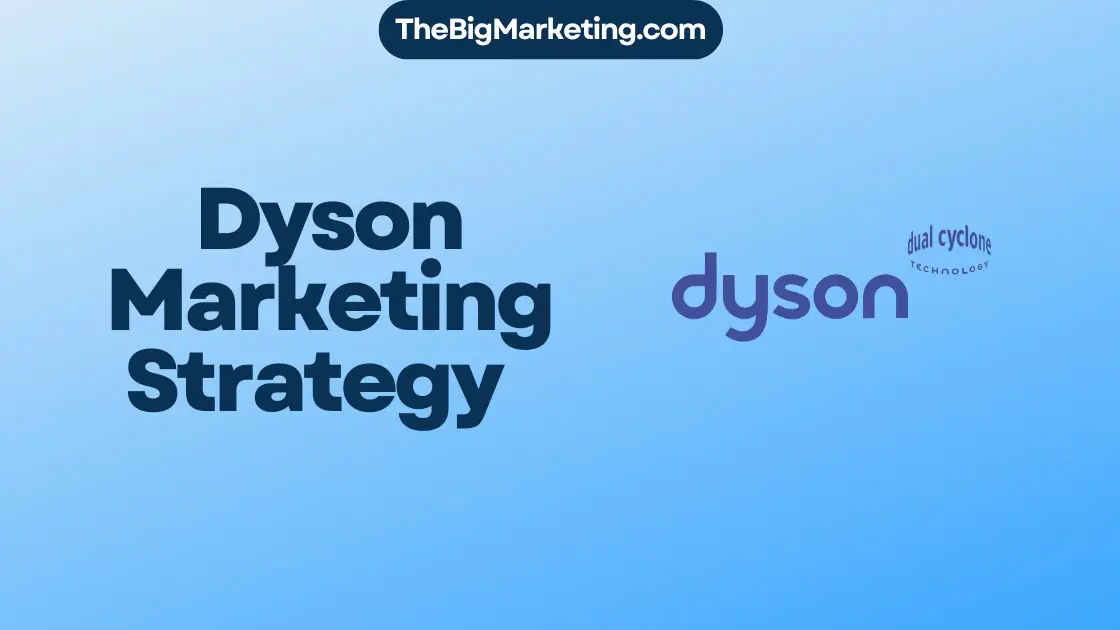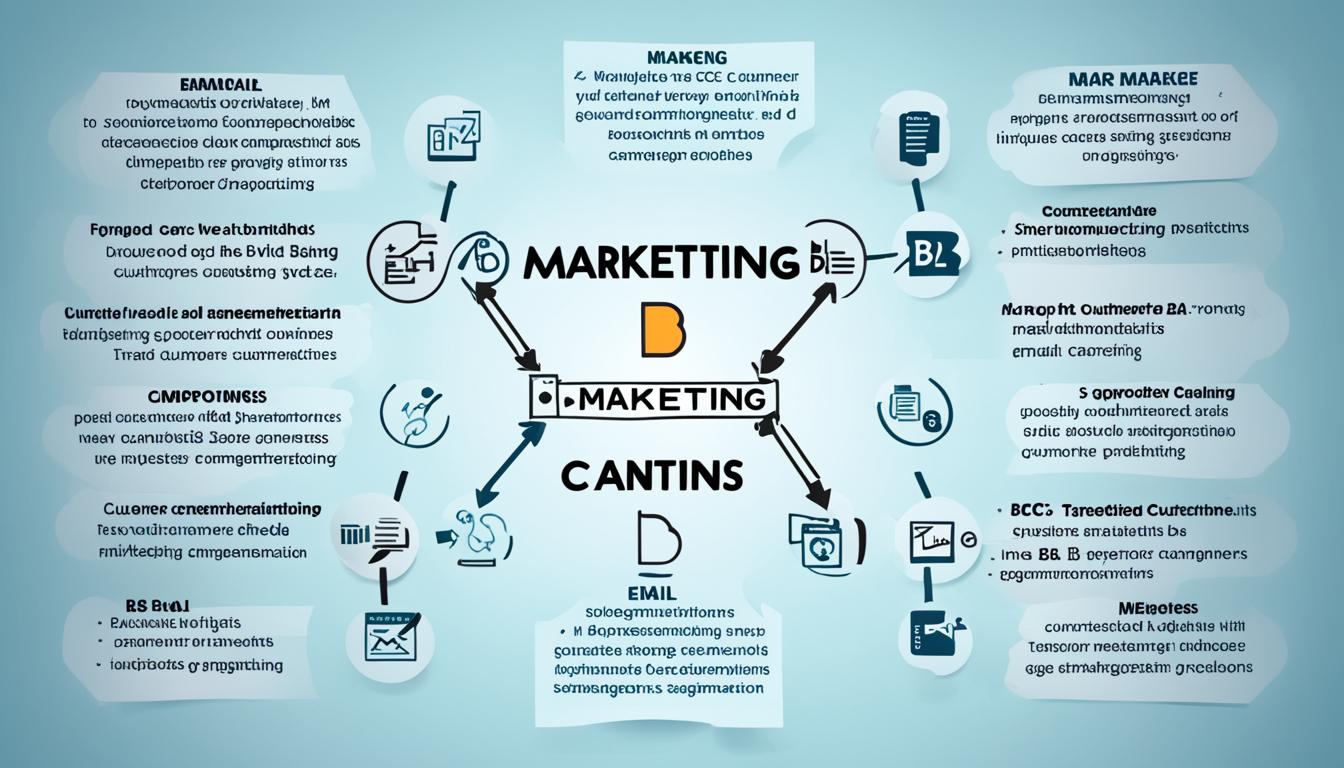Welcome to our in-depth analysis of the marketing strategy employed by the renowned Four Seasons Hotel. In this case study, we will explore how Four Seasons Hotel has successfully positioned itself as a leader in the luxury hotel industry, leveraging effective marketing tactics, and staying ahead of hotel industry trends. From brand promotion to digital marketing techniques, we will delve into the strategies that have contributed to Four Seasons’ remarkable success.
At Four Seasons Hotel, the marketing approach revolves around the four Ps of the marketing mix – product, pricing, promotion, and place. By focusing on each element, Four Seasons has crafted a marketing strategy that caters to the needs and desires of luxury travelers, ensuring an exceptional guest experience at every touchpoint.
Throughout this case study, we will examine the various aspects of Four Seasons Hotel’s marketing strategy, including its flagship product – the luxury accommodation experience that epitomizes the brand’s commitment to excellence. We will also explore how Four Seasons utilizes strategic pricing to reflect its luxury positioning, selects strategic locations to cater to its target customers, and employs promotion techniques that emphasize its brand elegance and image.
Furthermore, we will delve into Four Seasons’ digital marketing efforts, highlighting the importance of a multi-channel approach and how it has enhanced the brand’s online presence and engagement with customers. In addition, we will uncover the positive outcomes achieved through these marketing initiatives, such as increased revenue and customer engagement.
As we move forward, we will also discuss Four Seasons’ global expansion strategy and its focus on targeting specific market segments, such as weddings and multi-generational families. By understanding the unique needs and preferences of these segments, Four Seasons has been able to provide tailored experiences and capture a larger market share.
Finally, we will analyze the advantages gained from Four Seasons’ marketing strategy, including brand differentiation, strong positioning, and personalized experiences. We will conclude by summarizing the key takeaways from this case study, highlighting the essential lessons learned from Four Seasons’ success.
Key Takeaways:
- Four Seasons Hotel’s marketing strategy revolves around the four Ps of the marketing mix – product, pricing, promotion, and place.
- The flagship product of Four Seasons Hotel is a luxury accommodation experience that epitomizes the brand’s commitment to excellence.
- Strategic pricing is used by Four Seasons to reflect its luxury positioning and attract customers who value the brand experience.
- Four Seasons strategically selects locations in major cities and popular vacation destinations to provide convenience for its target customers.
- Promotion techniques employed by Four Seasons emphasize the brand’s elegance and image, attracting customers who appreciate luxury and exceptional service.
Four Seasons’ Flagship Product: Luxury Accommodation Experience
At the heart of Four Seasons Hotel’s marketing strategy is its flagship product: a high-quality accommodation experience that sets the standard for luxury in the industry. Four Seasons prioritizes providing guests with an exceptional stay, meeting and exceeding their expectations at every turn.
Guests can indulge in a range of luxury options, including elegantly designed rooms, opulent suites, and spacious villas, each meticulously curated to evoke a sense of grandeur and sophistication. The attention to detail is evident in every aspect, from the plush furnishings to the premium amenities.
Furthermore, Four Seasons prides itself on offering a comprehensive array of facilities and services to enhance guests’ experience during their stay. From world-class dining options that tantalize the taste buds to tranquil spa retreats that rejuvenate the body and mind, guests can immerse themselves in a world of refined luxury.
The hotel’s conference venues are also crafted to cater to the most discerning business travelers, providing state-of-the-art technology, elegant spaces, and exceptional service, ensuring successful and memorable events.
By prioritizing high-quality accommodation and exceptional service at its core, Four Seasons Hotel sets itself apart in the luxury hotel market and delivers an unforgettable experience that leaves a lasting impression on its esteemed clientele.
The Four Seasons Luxury Accommodation Experience
| Rooms | Suites | Villas | Facilities | Services |
|---|---|---|---|---|
| Sumptuously furnished | Elegantly designed | Luxurious and spacious | World-class dining | Premium amenities |
| Unparalleled comfort | Exquisite detailing | Impeccable privacy | Tranquil spa retreats | 24/7 concierge |
| Spectacular views | Expansive living areas | Unmatched exclusivity | State-of-the-art fitness centers | In-room dining |
Pricing Strategy: Reflecting Luxury and Value
As a high-end luxury brand, Four Seasons Hotel strategically sets its pricing to align with its commitment to excellent quality and service standards. The hotel’s pricing strategy emphasizes the value and unique experiences offered to guests, ensuring that their expectations for luxury are met and exceeded. Room rates at Four Seasons Hotels are typically higher compared to other establishments, reinforcing the brand’s reputation and catering to the discerning tastes of its target market.
The pricing strategy implemented by Four Seasons Hotel plays a crucial role in maintaining the perception of luxury and exclusivity. By setting higher room rates, the brand reinforces its distinguished position in the luxury hotel market and presents itself as a symbol of prestige and elevated travel experiences. This resonates with customers who value the unparalleled quality and exceptional service that the Four Seasons brand provides.
Moreover, the pricing strategy reflects the brand’s commitment to delivering value to its guests. While the rates may be higher, they are justified by the exceptional level of service, luxurious amenities, and attention to detail that guests experience during their stay. Four Seasons Hotel ensures that every aspect of the guest experience is meticulously crafted to provide a sense of exclusivity, making each stay truly memorable and worthwhile.
Four Seasons Hotel understands that its target audience seeks more than just a place to stay. They desire an immersive and transformative luxury experience. By pricing its rooms accordingly, the brand attracts customers who recognize the value in investing in a Four Seasons stay, knowing that they will receive top-notch service, premium amenities, and an unforgettable journey in return.
Comparative Pricing: Four Seasons vs. Competitors
To illustrate the positioning of Four Seasons Hotel’s pricing strategy amidst its competitors, we present a comparison table below:
| Hotel | Average Room Rate per Night | Features and Amenities |
|---|---|---|
| Four Seasons Hotel | $500+ | – Luxury accommodations – Personalized service – Fine dining options – Spas and wellness facilities – Exclusive amenities |
| Competitor A | $300 | – Standard accommodations – Limited service – Basic dining options – General amenities |
| Competitor B | $400 | – Upscale accommodations – Some personalized service – Diverse dining options – Wellness facilities – Mid-range amenities |
Note: The above rates are approximate and vary depending on location, season, and other factors.
As demonstrated in the table, Four Seasons Hotel sets itself apart from its competitors by offering higher room rates that are justified by the exceptional features and amenities provided. The hotel’s pricing strategy reflects its unwavering commitment to delivering an unparalleled luxury experience, ensuring that guests feel valued and pampered throughout their stay.
Strategic Locations: Convenient for Customers
One of the key elements of Four Seasons Hotel Marketing Strategy is its strategic selection of locations. The hotel brand carefully chooses its destinations, keeping in mind the preferences and convenience of its target customers. Four Seasons primarily focuses on major cities, scenic spots, and popular resorts, ensuring that its hotels are situated in city centers or destinations that provide easy accessibility to guests.
This strategic approach allows Four Seasons to cater to the needs of its discerning customers and provide them with a convenient and luxurious experience. By selecting locations that are in proximity to popular tourist attractions, business districts, and transportation hubs, Four Seasons ensures that its guests have effortless access to their accommodations.
The brand understands that convenience is a crucial factor for customers when choosing a hotel, especially in luxury travel. By strategically locating their properties, Four Seasons Hotel becomes an attractive option for both leisure and business travelers.
Strategic Locations: Benefits and Advantages
The strategic selection of locations by Four Seasons Hotel offers several benefits and advantages:
- Convenience: The hotels’ proximity to major attractions and business centers ensures that guests have easy access to their desired destinations.
- Luxurious Surroundings: By situating their hotels in scenic spots and popular resorts, Four Seasons enhances the overall experience for their guests, providing them with beautiful surroundings and stunning views.
- Competitive Advantage: The strategic locations of their properties give Four Seasons a competitive edge over other luxury hotel brands, attracting customers who value convenience and accessibility.
- Brand Image: The carefully chosen locations contribute to Four Seasons’ brand image as a premier luxury hotel chain, associating their properties with prestigious and sought-after destinations.
Overall, Four Seasons’ strategic locations play a vital role in fulfilling the needs and preferences of their target customers, offering them a seamless and luxurious experience.
| Advantages of Strategic Locations | Benefits for Customers |
|---|---|
| Convenience | Easy access to desired destinations |
| Luxurious Surroundings | Beautiful surroundings and stunning views |
| Competitive Advantage | Edge over other luxury hotel brands |
| Brand Image | Association with prestigious destinations |
Promotion Techniques: Emphasizing Brand Image and Elegance
Four Seasons Hotel adopts a comprehensive approach to promote its brand, focusing on highlighting its image of elegance and delivering exceptional service. The hotel employs various promotion techniques, both online and offline, to attract customers who value luxury and sophistication.
One of the key components of Four Seasons’ promotion strategy is high-quality advertising that showcases the brand’s elegance and luxurious offerings. The hotel’s promotional materials feature stunning visuals and captivating narratives, capturing the attention of potential guests and portraying the unique experience they can expect.
Furthermore, Four Seasons actively leverages the power of social media to engage with its audience and strengthen its brand image. The hotel maintains a strong social media presence on platforms such as Facebook, Instagram, Twitter, and LinkedIn, where it regularly shares captivating content, including breathtaking images and compelling stories. By maintaining an interactive and engaging online presence, Four Seasons taps into the digital realm to reach a wider audience and foster customer loyalty.
In addition to advertising and social media, Four Seasons Hotel also focuses on strategic collaborations and partnerships to enhance its brand image. The hotel collaborates with renowned luxury brands and influential personalities to create exclusive experiences and offer unique amenities to its guests. These collaborations not only attract attention but also position Four Seasons as a prestigious and highly sought-after destination for luxury travelers.
Four Seasons Hotel Promotion Techniques
| Promotion Techniques | Description |
|---|---|
| High-Quality Advertising | Visually captivating promotional materials that emphasize the brand’s elegance and luxurious offerings. |
| Social Media Engagement | Active presence on popular social media platforms, sharing captivating content and fostering customer engagement. |
| Strategic Collaborations | Partnerships with luxury brands and influential personalities to create unique experiences and amenities. |
Through its promotion techniques, Four Seasons Hotel effectively establishes and reinforces its brand image of elegance, luxury, and exceptional service. These efforts not only attract high-end customers but also contribute to the hotel’s market leadership and reputation in the luxury hotel industry.
Enhancing Digital Presence: A Multi-Channel Approach
Four Seasons Hotel understands the significance of a strong digital presence in today’s competitive luxury hotel market. To effectively reach and engage with its target audience, the brand has adopted a comprehensive multi-channel digital marketing strategy.
Well-Designed Website Tailored for Luxury Travelers
At the heart of Four Seasons’ digital marketing approach is a meticulously crafted website designed specifically to cater to the needs and desires of luxury travelers. The website’s user-friendly interface, visually stunning imagery, and seamless navigation provide a truly immersive and effortless online experience for potential guests.
Social Media Engagement on Leading Platforms
Recognizing the power of social media in shaping consumer behavior, Four Seasons Hotel maintains an active presence on popular platforms such as Facebook and Twitter. By sharing captivating content, stunning visuals, and engaging with their audience, the brand ensures a consistent and impactful social media presence that aligns with its luxury hotel marketing strategy.
Curated Content on YouTube Showcasing Property Experiences
Four Seasons Hotel uses YouTube as a platform to showcase its exceptional property experiences. Through curated video content, potential guests can get a glimpse of the luxurious accommodations, world-class amenities, and personalized services that await them. This approach not only captures the attention of viewers but also entices them to explore the brand further.
Leveraging Location-Based Services
Four Seasons Hotel leverages location-based services such as Foursquare and Gowalla to connect with travelers during their stay. By providing personalized recommendations, tips, and exclusive offers, the brand enhances the guest experience and fosters a sense of loyalty.
Presence on Tumblr and Pinterest
In recognition of the evolving digital landscape, Four Seasons Hotel extends its reach to platforms like Tumblr and Pinterest. These visually-focused platforms enable the brand to showcase its unique offerings, behind-the-scenes moments, and evoke a sense of wanderlust among its target audience.
| Channel | Benefits |
|---|---|
| Website | Immersive experience tailored to luxury travelers |
| Social Media | Engagement, brand exposure, and customer interaction |
| YouTube | Visual storytelling and showcasing unique property experiences |
| Location-Based Services | Personalization and enhanced guest experience |
| Tumblr and Pinterest | Visual inspiration and extended brand reach |
Achieving Positive Outcomes: Increased Revenue and Engagement
Four Seasons Hotel’s digital marketing strategy has yielded significant positive outcomes, driving revenue growth and increased customer engagement. The implementation of a new website has resulted in improved metrics across various key performance indicators, including visits, bookings, conversion, and revenue. Additionally, the brand has experienced an increase in brand-level followers on Pinterest, indicating a growing audience interested in Four Seasons’ luxury offerings.
The hotel has also witnessed higher engagement on Twitter, with increased interactions, retweets, and mentions from both existing and potential customers. This indicates a successful strategy in fostering meaningful connections through social media platforms, allowing Four Seasons to effectively communicate its brand message and engage directly with its target audience. The digital marketing efforts have enabled the hotel to develop a loyal following and further enhance the brand’s reputation in the luxury hotel market.
Furthermore, Four Seasons has seen an uptick in bookings completed on tablet devices, showcasing the brand’s ability to provide a seamless user experience across various digital platforms. The hotel’s responsive design and user-friendly interface have contributed to an increase in conversions, allowing customers to easily make reservations and purchase services directly from their tablets.
Moreover, the hotel’s email marketing campaigns have experienced improved open rates, indicating a higher level of customer engagement and interest in the hotel’s offerings. By crafting compelling and personalized email content, Four Seasons has been able to capture the attention of its target audience and drive them to take action.
Overall, Four Seasons Hotel has successfully leveraged its digital marketing strategy to achieve positive outcomes in terms of revenue growth and increased engagement. By aligning its online presence with the needs and preferences of its target market, the hotel has positioned itself as a leader in luxury hotel marketing, attracting and retaining loyal customers who value exceptional experiences.
| Positive Outcomes | Metrics |
|---|---|
| New Website Performance | Improved visits, bookings, conversion, and revenue |
| Increased Brand-Level Followers on Pinterest | Showcasing growing interest in luxury offerings |
| Higher Engagement on Twitter | Increased interactions, retweets, and mentions |
| Increased Bookings on Tablet Devices | Enhanced user experience and seamless reservations |
| Improved Email Open Rates | Higher customer engagement and interest |
Global Expansion Strategy: Targeting New Markets
In line with its Four Seasons Hotel Marketing Strategy, the luxury hotel brand is focused on global expansion to increase its presence and brand awareness. With approximately 50 projects currently underway at various stages of design and construction, Four Seasons has set its sights on strategic markets around the world. The brand’s global expansion strategy includes a particular emphasis on capturing the attention of travelers in China, India, and Latin America.
Four Seasons employs a meticulous approach to selecting new markets, carefully considering destinations that align with their customers’ preferences and desires. By studying market trends and identifying locations where their target audience wants to go, Four Seasons ensures that its properties evoke the signature Four Seasons experience that guests have come to expect.
The ultimate goal of this global expansion strategy is twofold: to attract new travelers to Four Seasons and to further strengthen the brand’s global presence. Through the creation of exceptional luxury accommodations in key markets, Four Seasons aims to position itself as the preferred choice for discerning travelers worldwide.
Target Markets
Four Seasons’ target markets for global expansion encompass a range of countries and regions. However, the brand’s primary focus is on China, India, and Latin America. With their rapidly growing economies and increasing middle-class populations, these markets offer significant potential for luxury hotel growth and expansion opportunities.
China, with its affluent and discerning traveler demographic, represents a key market for Four Seasons. As international travel from China continues to rise, Four Seasons aims to cater to this growing segment by providing luxury accommodations and unparalleled service.
India, known for its rich cultural heritage and growing luxury travel market, presents another attractive opportunity for Four Seasons. By establishing a strong presence in India, the brand seeks to tap into the country’s high net worth individuals and luxury-conscious travelers, offering them a world-class hospitality experience.
Latin America, with its diverse landscapes, vibrant culture, and emerging luxury travel market, is also a target market for Four Seasons. By strategically developing properties in key Latin American destinations, such as Mexico, Brazil, and Argentina, Four Seasons aims to capture the imagination of travelers seeking luxurious and immersive experiences in the region.
Benefits of Global Expansion
Four Seasons’ global expansion strategy brings several key benefits to the luxury hotel brand. By entering new markets and establishing a strong presence, Four Seasons can:
- Expand its customer base by attracting new travelers who may not have previously considered Four Seasons as their preferred accommodation choice
- Increase brand awareness and recognition globally, solidifying its position as a leading luxury hotel brand
- Tap into the spending power of emerging markets, such as China and India, to drive revenue growth
- Benefit from the growing demand for luxury travel experiences in key regions, such as Latin America
Overall, Four Seasons’ global expansion strategy serves as a crucial driver for the brand’s continued success and growth in the luxury hotel industry.
Targeting Specific Market Segments: Weddings and Multi-Generational Families
Four Seasons Hotel employs a strategic approach by targeting specific market segments to cater to their unique needs. This allows the luxury hotel brand to provide tailored experiences that cater to the preferences of these market segments.
Weddings
For couples looking to celebrate their special day, Four Seasons offers a range of services to help plan and execute unforgettable weddings. Whether it’s a beachside ceremony or a city reception, Four Seasons works closely with couples to create a personalized wedding experience that reflects their vision. From elegant venues to exquisite cuisine and attentive service, the hotel ensures that every aspect of the wedding is flawlessly executed.
Multi-Generational Families
Understanding the importance of creating memorable experiences for multi-generational families, Four Seasons goes the extra mile to cater to the needs of every family member. From grandparents to parents and kids, the hotel makes sure that everyone has an enjoyable and memorable stay. Offering a range of activities and amenities suitable for all ages, Four Seasons ensures that families can make the most of their time together and create lasting memories.
By targeting these specific market segments, Four Seasons Hotel demonstrates their commitment to personalized service and creating unforgettable experiences for their guests.
Advantages and Key Learnings
Four Seasons Hotel’s marketing strategy offers several advantages that position the brand as a leader in the luxury hotel industry. These advantages include:
- Differentiation through luxury and service excellence: Four Seasons Hotel sets itself apart by delivering exceptional luxury accommodations and top-notch service. The brand’s commitment to providing an unforgettable experience for its guests creates a distinct competitive advantage in the market.
- Strong brand positioning: Through its consistent focus on delivering high-quality experiences, Four Seasons Hotel has established itself as a renowned and trusted luxury brand. The brand’s strong positioning enhances customer confidence and loyalty, attracting a discerning clientele.
- Personalized experiences: Four Seasons Hotel excels in offering personalized experiences that cater to the unique preferences of its guests. From tailored amenities to customized itineraries, the brand goes above and beyond to create unforgettable moments for each guest.
Key learnings from Four Seasons Hotel’s marketing strategy can be summarized as follows:
- Knowing the target audience and developing customized content: Understanding the target market’s preferences and interests is crucial for creating engaging and relevant content. Four Seasons Hotel’s success lies in its ability to tailor its messaging and offerings to resonate with its target audience.
- Leveraging social media platforms for engagement and exposure: Four Seasons Hotel capitalizes on the power of social media to connect with its audience, foster engagement, and gain exposure. By utilizing platforms like Facebook, Twitter, and Instagram, the brand can showcase its luxury offerings and interact directly with potential guests.
- Being at the forefront of adopting new customer engagement methods: Four Seasons Hotel stays ahead of the competition by embracing innovative customer engagement methods. Whether it’s implementing cutting-edge technology or designing unique experiences, the brand continuously evolves to exceed customer expectations.
These insights gained from Four Seasons Hotel’s marketing strategy contribute to building brand value, maintaining a competitive edge, and solidifying the brand’s position in the luxury hotel market.
Advantages and Key Learnings
Four Seasons Hotel’s marketing strategy provides significant advantages that set it apart in the luxury hotel industry. By focusing on luxury and service excellence, Four Seasons differentiates itself from competitors. The brand’s strong positioning and reputation contribute to its success. Additionally, the hotel’s personalized experiences cater to the unique preferences of guests, creating memorable stays. Key learnings from Four Seasons Hotel’s marketing approach include the importance of understanding the target audience, developing customized content, leveraging social media for engagement and exposure, and adopting innovative customer engagement methods. These insights contribute to building brand value and staying ahead in the competitive luxury hotel market.
| Advantages | Key Learnings |
|---|---|
| Differentiation through luxury and service excellence | Knowing the target audience and developing customized content |
| Strong brand positioning | Leveraging social media platforms for engagement and exposure |
| Personalized experiences | Being at the forefront of adopting new customer engagement methods |
Conclusion
Four Seasons Hotel has successfully implemented a comprehensive marketing strategy to establish its position as a leading luxury hotel brand. By focusing on the marketing mix, strategic locations, digital presence, and targeted market segments, Four Seasons has achieved positive outcomes and global expansion.
The brand’s emphasis on luxury, service excellence, and personalized experiences has made it a preferred choice for discerning travelers. With its commitment to continuous innovation and attention to customer needs, Four Seasons Hotel maintains its position as a top player in the luxury hotel industry.
In conclusion, Four Seasons Hotel’s marketing strategy showcases the brand’s dedication to delivering exceptional experiences and exceeding customer expectations. Its success can be attributed to a combination of factors, including an effective marketing mix, carefully selected locations, a strong digital presence, and targeted market segmentation. The brand’s focus on luxury and personalized service has allowed it to attract discerning travelers and achieve global recognition as a leader in the luxury hotel market.






